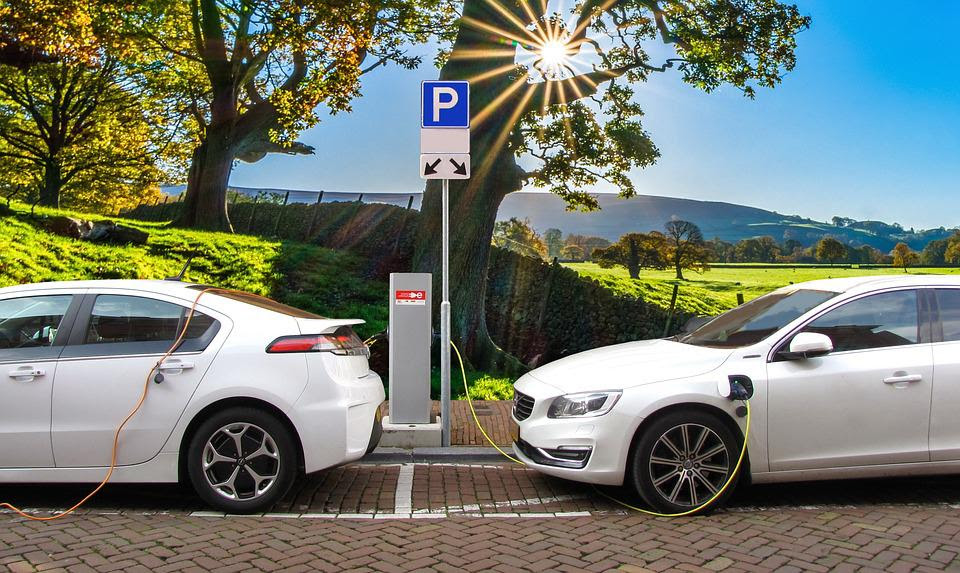
INSTALLATION OF ELECTRIC VEHICLE CHARGING STATIONS IN CONDOMINIUM PARKING AREAS
Florida is blessed to have abundant, beautiful natural resources: beaches, rivers, lakes, wetlands, and forests. The Florida legislature has adopted multiple laws aimed at protecting the state’s environmental resources through conservation and promotion of clean energy. In furtherance of this policy, on March 23, 2018, former Governor Rick Scott approved House Bill 841 amending Chapter 718, Florida Statutes Section 718.113 to add a new subsection (8) providing that a condominium association may not prohibit a unit owner from installing an electronic vehicle charging station in a limited common element parking area assigned to such unit owner.
Are Parking Spaces “Limited Common Elements”?
This law only requires condominium associations to permit installation of electronic vehicle charging stations in “limited common element” parking areas assigned to individual unit owners. Associations are not required to permit installation of electronic vehicle charging stations in condominium common elements or other portions of the condominium property that are maintained for the use and benefit of all unit owners. Therefore, in considering a unit owner’s request to install an electric vehicle charging station, the association first must determine whether the charging station is to be installed within the boundaries of a “limited common element” parking space assigned for the exclusive use and benefit of that unit owner.
Whether a parking space is a “limited common element” is determined by the provisions of the condominium’s governing documents. Typically, “limited common elements” are portions of the condominium common elements that are assigned for the exclusive use and benefit of a specific unit owner. Although assigned parking spaces or covered parking areas frequently are designated as “limited common elements” in a condominium’s declaration of condominium, this is not always the case, and an association should carefully review their governing documents to determine if a unit owner’s parking space is a “limited common element” as defined in that association’s governing documents.
Limitations on a Unit Owner’s Right to Install Electric Vehicle Charging Stations
If parking spaces are “limited common elements” within the meaning of the condominium’s governing documents, then the association must permit installation of electric vehicle charging stations subject to certain conditions. The association should require the charging station to be located entirely within the boundaries of the unit owner’s limited common element parking area so that it does not interfere with any other unit owner’s use and enjoyment of the condominium common elements. Additionally, any unit who desires to install an electric vehicle charging station must pay all costs and expenses associated with the installation, operation, and maintenance of the charging station. To protect unit owners from increased utility expenses, the association should require the unit owner to obtain a separate, metered account for all electrical charges associated with the electric charging station. Finally, the association should require the unit owner operating an electric vehicle charging station to obtain adequate insurance to protect the condominium association from any liability that may arise out of, or relate to, the unit owner’s operation of the charging station.
Adoption of Rules and Regulations Governing Installation of Electric Charging Stations
If a condominium association includes limited common element parking areas, its board of directors should consider adopting reasonable rules and regulations governing the installation of electric vehicle charging station in parking areas, and those rules and regulations should mirror the language of HB 841. Specifically, in granting the request to install the charging station, the association should require the Unit Owners to:
1. Submit a plan showing the dimensions, placement, and external appearance of the proposed electric charging station;
2. Provide the name, contact information, and license number of the electrical contractor or engineer the Unit Owners propose to install the electric charging station;
3. Provide evidence that the Unit Owners have obtained from the applicable utility company a separate, metered account for all electrical charges associated with the electric charging station, which account is payable by the Unit Owner;
4. Obtain hazard and liability insurance covering claims relating to the electric charging station, and provide a certificate of insurance naming the Association as an additional insured on their insurance policy for any claim related to the electric charging station;
5. Sign an agreement in favor of the Association in which the Unit Owners agree to do the following:
- comply with all applicable building code requirements and recognized safety standards regarding electric charging stations;
- pay for all costs of installing, operating, maintaining, repairing, and replacing the electric charging station;
- pay for all utility charges the Unit Owner incurs in connection with the electric charging station;
- reimburse the Association for any damages, costs, or expenses, including increased insurance premiums, that the Association incurs in connection with the Unit Owner’s electric charging station;
- remove the electric charging station if the Unit Owner or his successor or assign decides there is no longer a need for the electric vehicle charging station, and pay all cost associated with such removal;
- if the electric charging station is removed, restore the property to the same or better condition in which it existed prior to the installation of the electric charging station; and
- indemnify and defend the Association from any liability or damages it incurs in connection with the charging station.
Condominium owners desiring to purchase electric vehicles likely will welcome this amendment to Section 718.113, Florida Statutes, and condominiums providing limited common element parking spaces, where electric vehicle charging stations may be installed, likely will be attractive to “green” purchasers. Still, it is important for condominium associations to consider developing rules and regulations governing the electric vehicle charging stations, and entering into contracts with unit owners installing electric vehicle charging stations in order to protect the common elements, the association, and other unit owners from any liability that may arise out of the use and operation of the electric vehicle charging stations.
